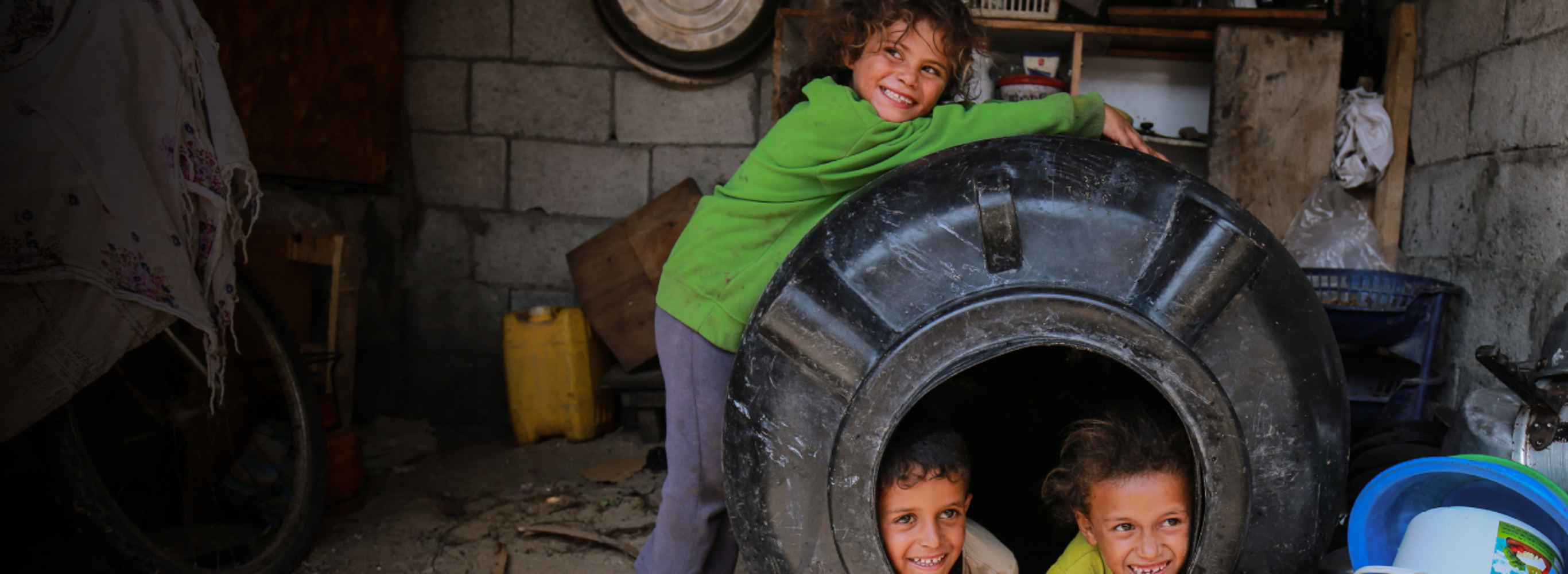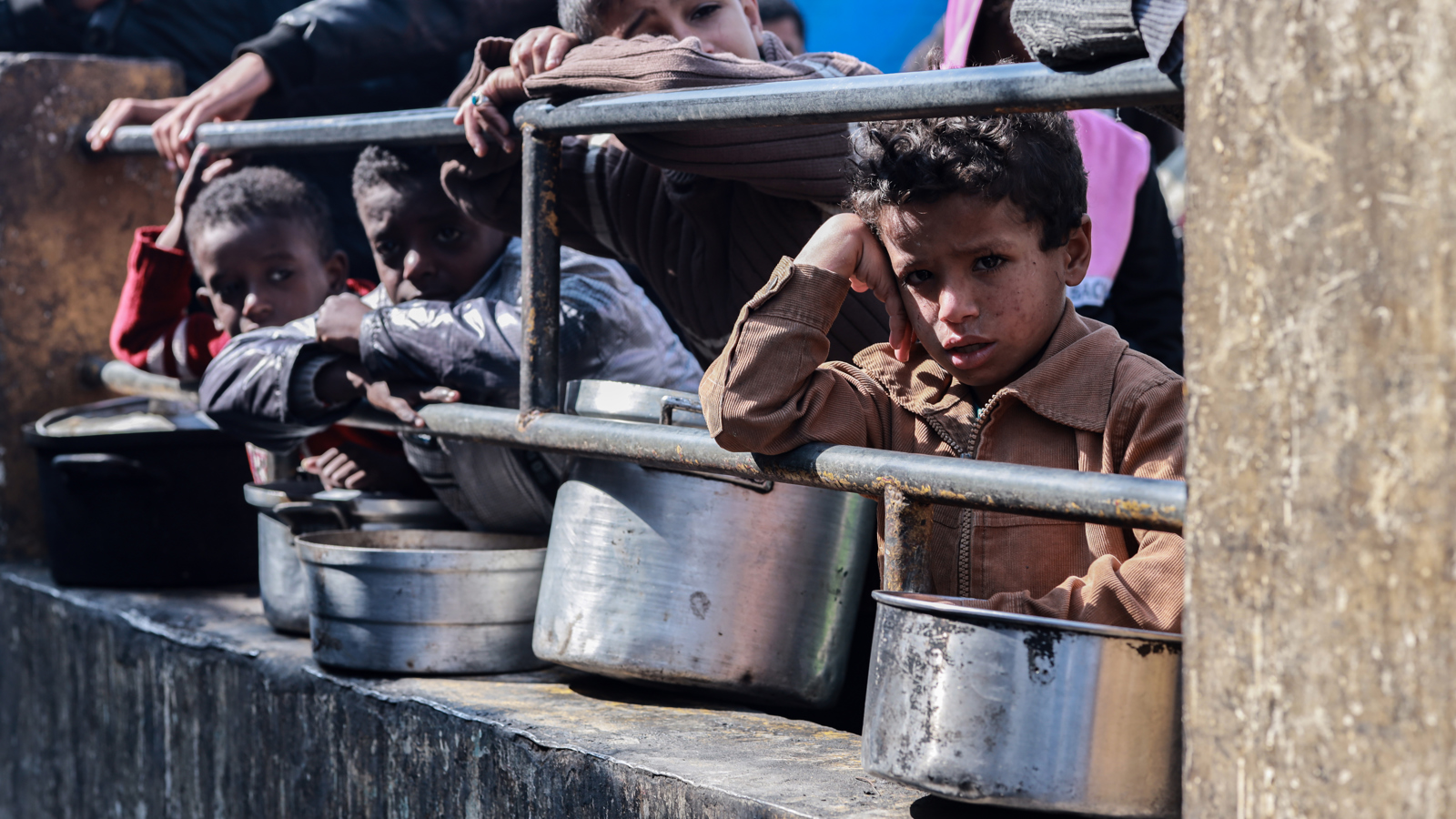
OUR
WORK IN PALESTINE
Since October 2023, over 47,000 Palestinians, mostly women and children, have been killed. Over 2 million people are in need of urgent assistance.
WHAT'S GOING ON?
Over 47,000 Palestinians, mostly women and children, have been killed in the Israel-Gaza war since October 2023. Over 110,453 people have been injured, and at least 10,000 are still missing. The entire population of Gaza, over 2.1 million people, is in urgent need of humanitarian assistance.
Our projects in Gaza focus on providing communities with essential aid, education, and healthcare. Your donation today is vital to delivering critical emergency aid, life-saving sustenance, clean water, and housing. Your donation, no matter the size, can make a meaningful difference in their lives.
 Quick Donate
Quick Donate
Scaling Up Our Response
We’ve worked in Gaza for many years, ensuring that life-saving aid reaches those who need it most in one of the world's most complex and dangerous environments.
We’ve scaled up our humanitarian response to the recent escalation of violence and actively provided emergency relief such as food, water, hygiene kits, sanitation and medical aid, reaching over 190,000 people since October 2023.
Action For Humanity is one of the only registered NGOs operating in the Occupied Palestinian Territories under no sanctions from any internal entity. This ensures that your donation goes further and reaches the right place, giving you the confidence that your support is making a real difference.
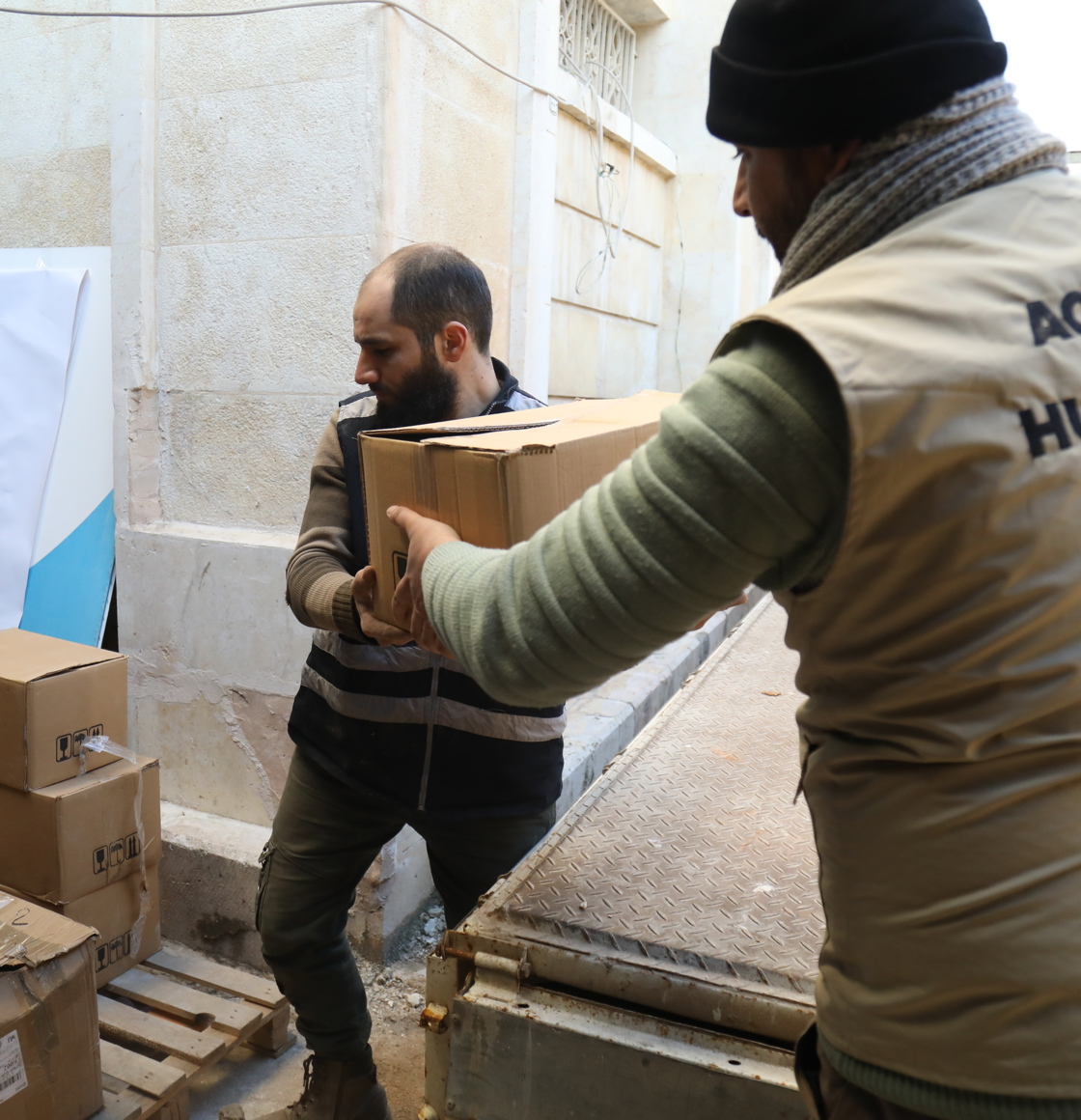
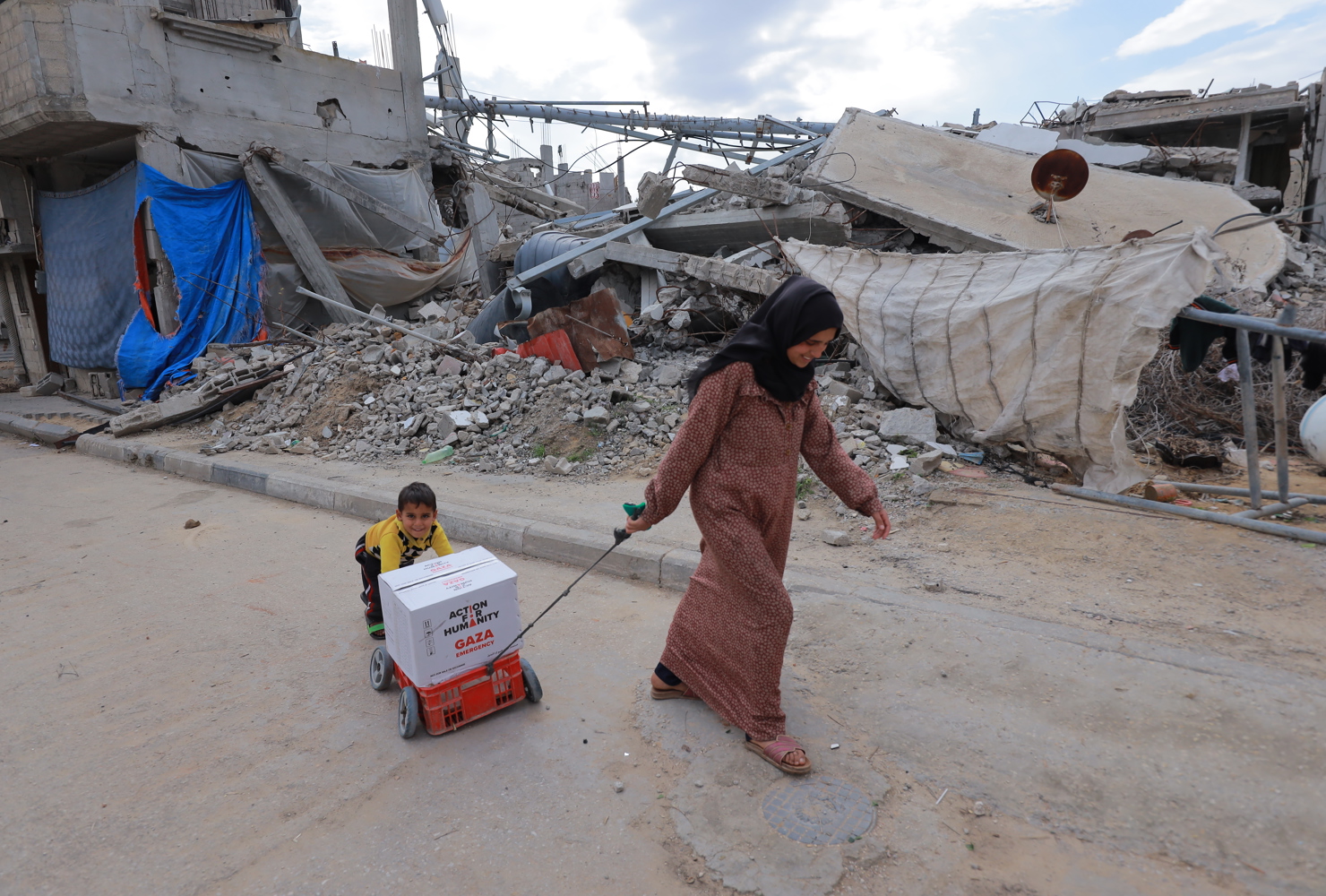
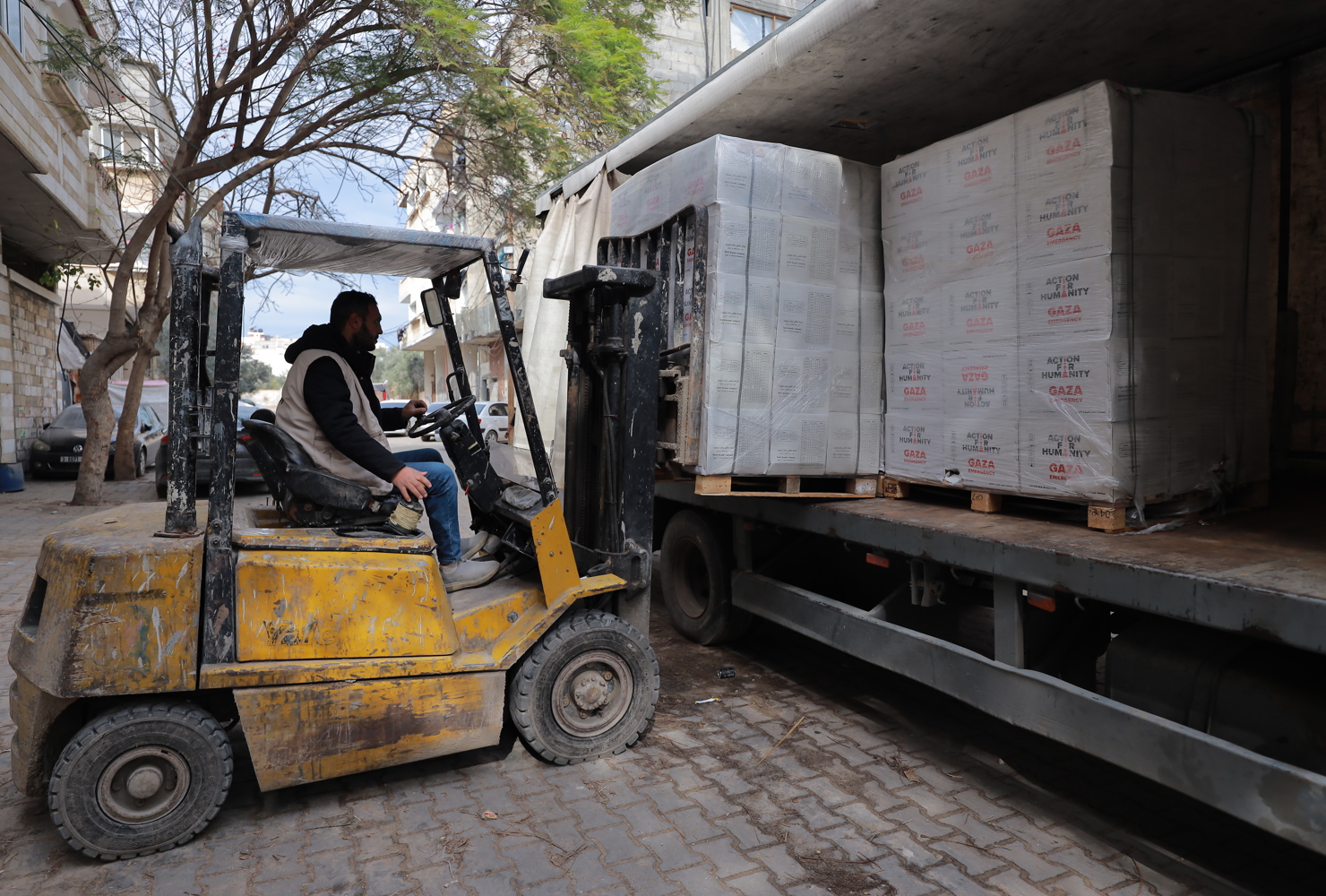
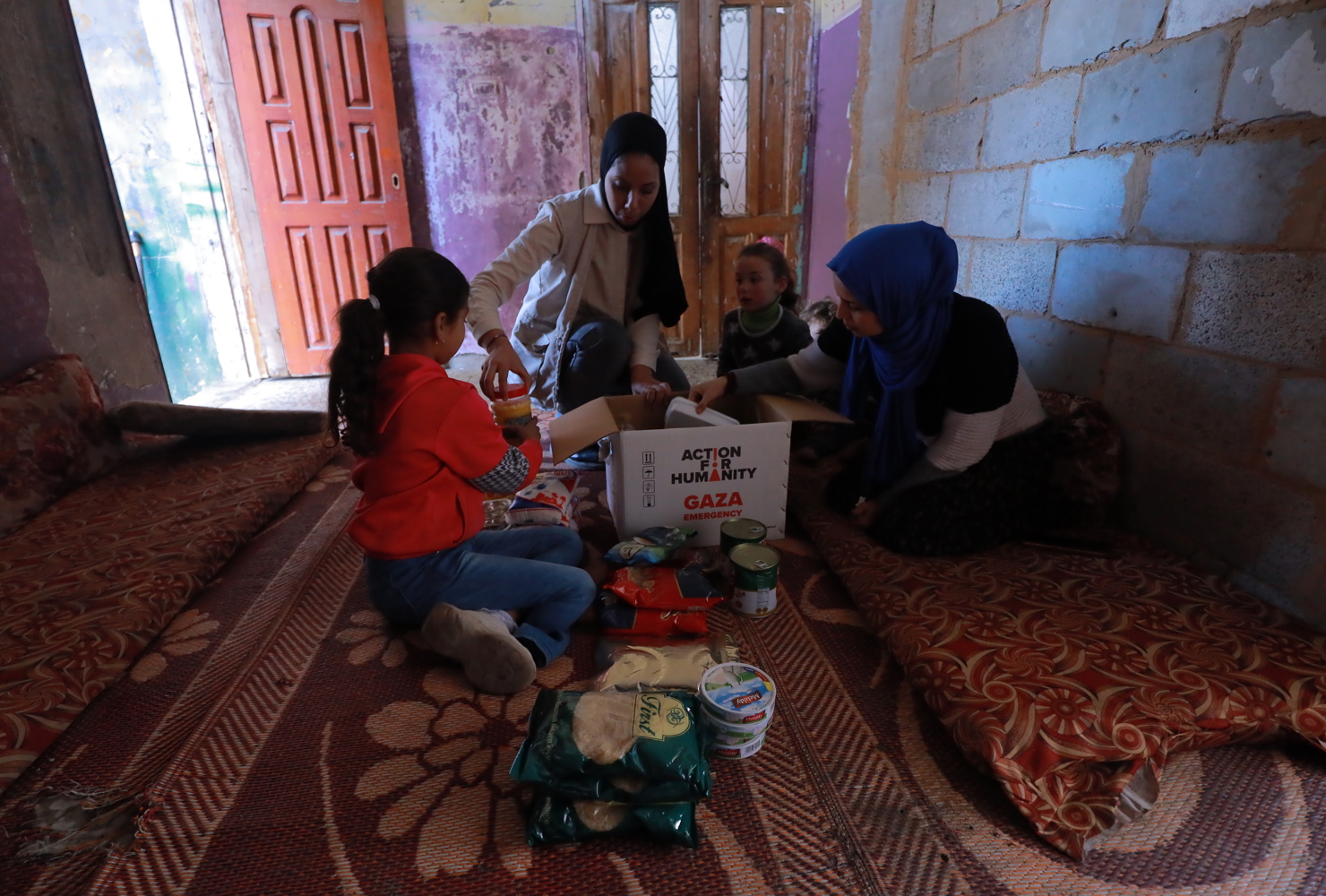
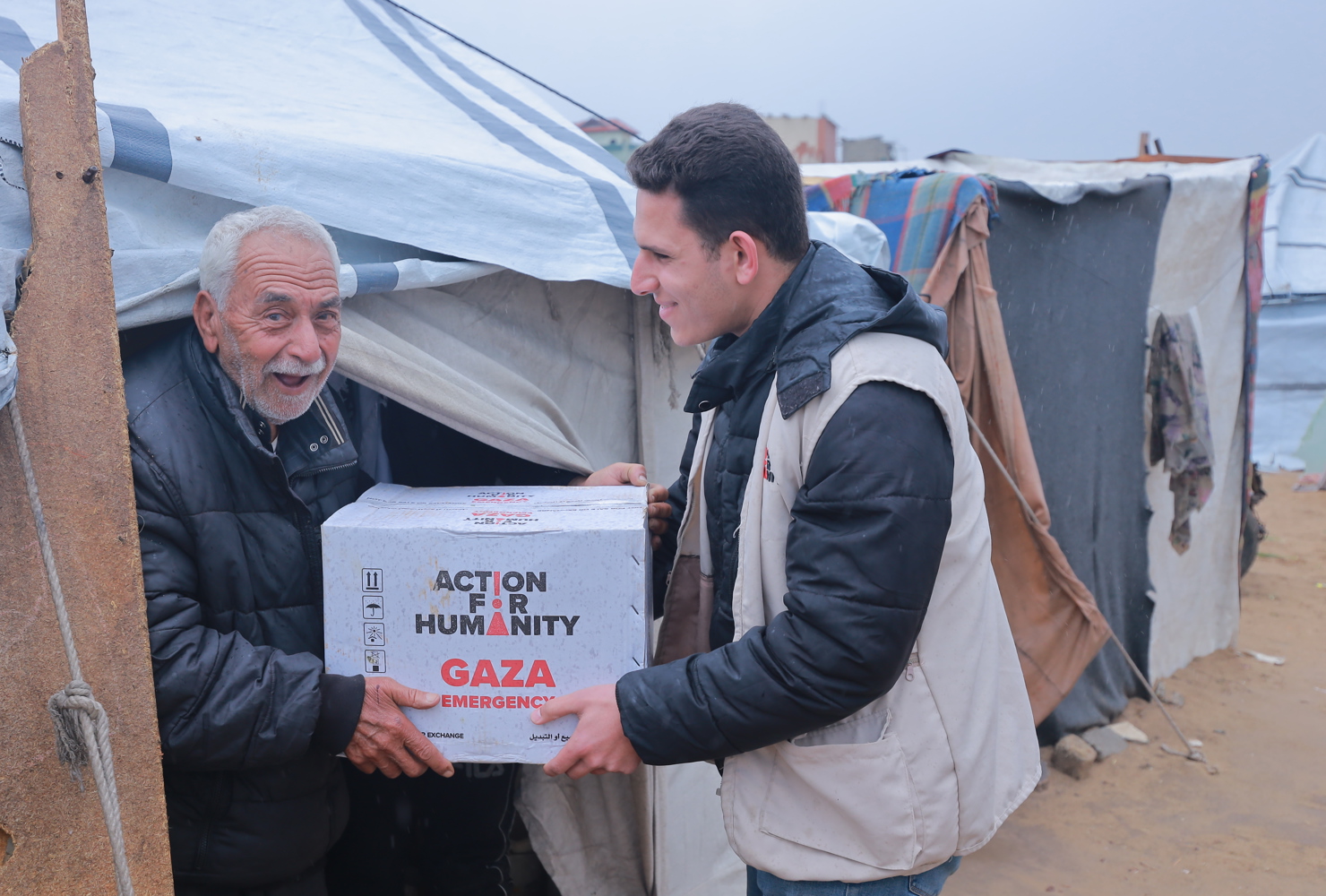
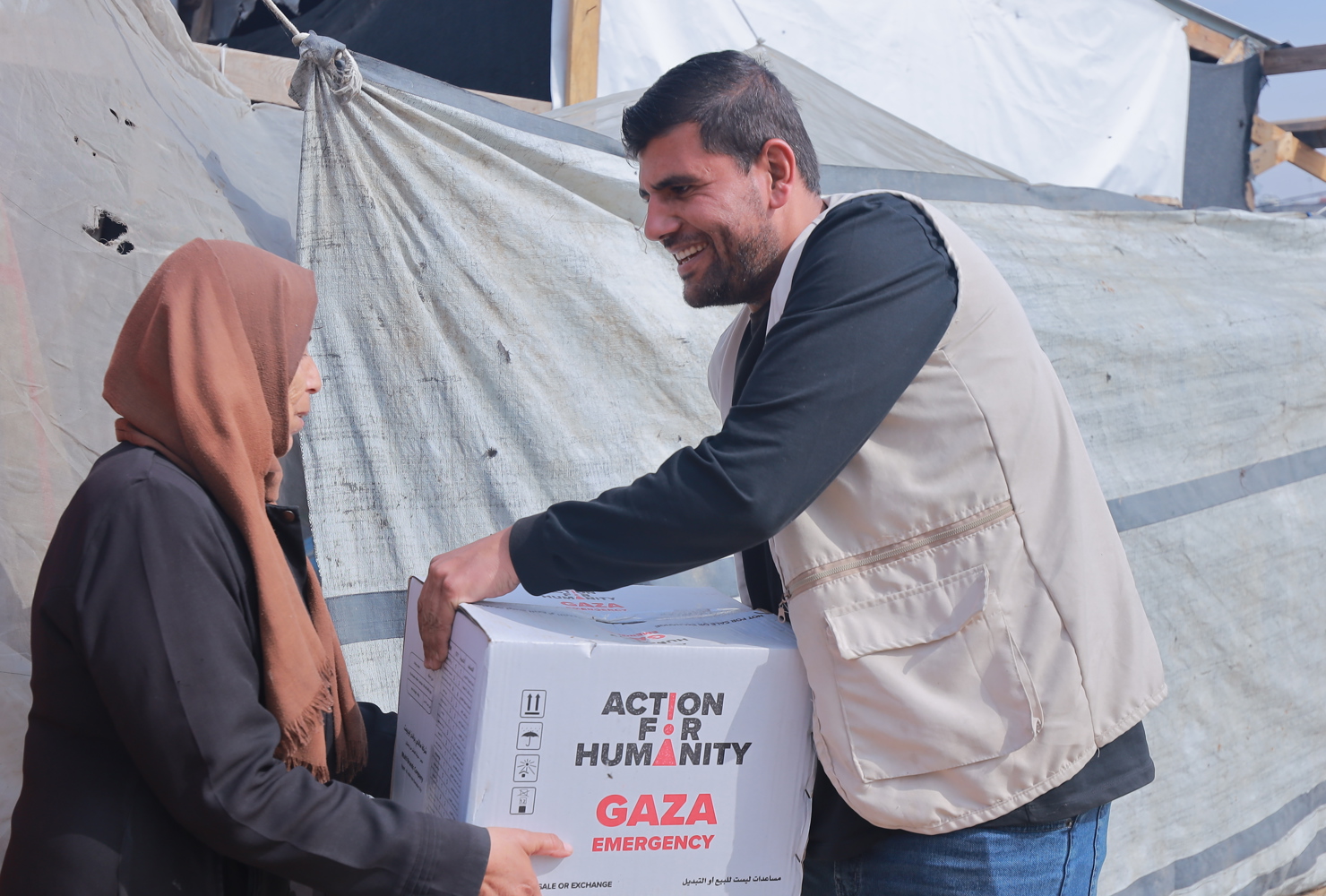
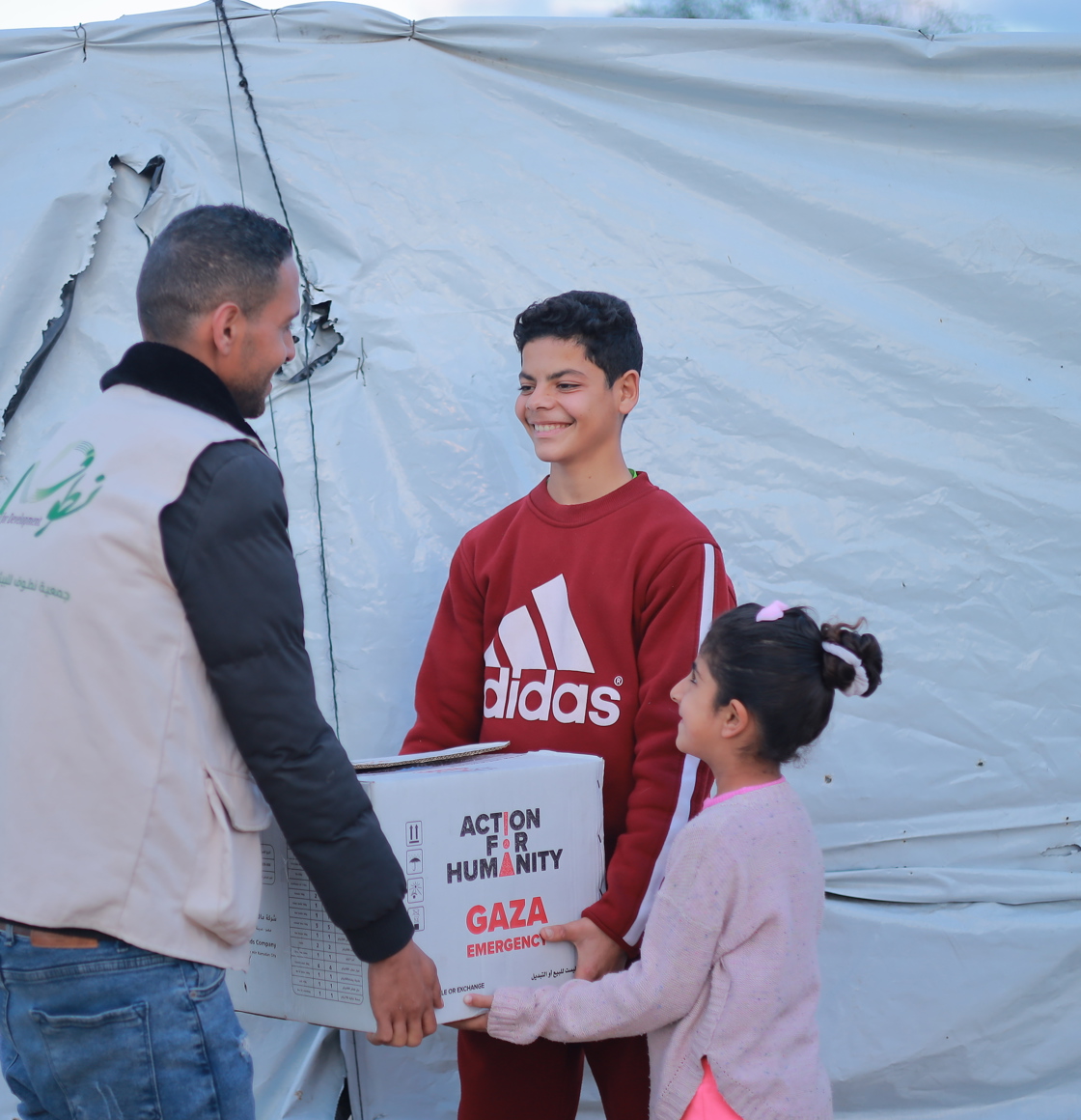
Frequently Asked Questions
2023 Emergency Response
Action For Humanity has been leading the response in Gaza since 2021 and has mobilised to support communities with emergency resources throughout the conflict of 2023. Through the support of our donors worldwide, we have so far supported over 190,000 people with food, water, medicine, and sanitation.
With your support, we can continue to stand in solidarity with the people of Gaza, helping them recover and rebuild with dignity and hope.
How does AFH provide medical access?
Our health projects, which provided medical supplies and equipment to Palestinian hospitals, benefitted almost 32,000 patients. Following years of conflict, the health sector is in a critical condition, with supplies dangerously low and major gaps in emergency care. Our Medical Response is crucial in bridging these gaps and ensuring everyone can access the treatment they need.
How is AFH providing access to clean water?
Access to clean water remains a major challenge in Palestine. In Gaza, nearly half the population struggles with water scarcity, and only a fraction of wastewater is treated. Every day, 90,000 cubic metres of raw sewage pollute the Mediterranean, increasing the risk of disease.
In response, we’re delivering life-saving water aid:
• Over 42,000 people benefit from solar-powered water filtration units on university campuses.
• Since the Gaza crisis began, we've distributed 54,000 litres of clean water to affected communities.
• Since October 2023, we've installed over 100 emergency toilets in Rafah, ensuring dignified sanitation for men, women, and those with disabilities.
How is AFH providing shelter?
We have built six HOPE camps in Rafah and the Gaza Strip, housing over 5,800 people displaced by the recent military aggression.
Alongside temporary housing solutions, the camps include WASH facilities, medical points, play areas for children and a charitable kitchen to ensure access to clean water and nutritious meals. Through these shelter efforts, we hope to foster resilience and pave the way towards recovery and long-term stability for the affected communities.
How does AFH support children and orphans?
We support 650 orphan households across the West Bank and Jerusalem with cash grants and food vouchers.
We are providing ongoing psychosocial support for children experiencing trauma from the violent escalations in Gaza, facilitating activities such as Art Therapy Sessions, Recreational Games and Sports, Storytelling and Drama Workshops, Music and Dance Therapy, and Social Support Groups. This initiative will help young children in Gaza regain a sense of stability, resilience, and emotional wellbeing.
Olive Tree Rehabilitation
Olive trees are an essential symbol of peace, hope, and resilience. They are also a vital source of food and livelihood for many communities across the Middle East.
For Palestine, olive trees have long been a key part of the country's landscape and economy. Olive cultivation in Palestine is considered a basic agricultural option for dry and semi-arid regions, providing sustainable land use. In addition to playing a key role in the economy and employing more than 20% of the workforce, olive oil is also a staple food in homes and a key export for the country. However, olive trees can be susceptible to diseases, pests, and environmental stressors, reducing their productivity.
We rehabilitate old and neglected olive tree farms to help restore degraded landscapes, prevent soil erosion, and support livelihoods. Please donate today to help support one of our key projects in Palestine.

